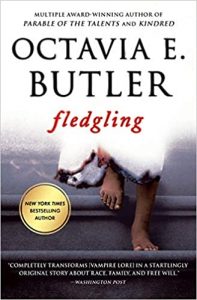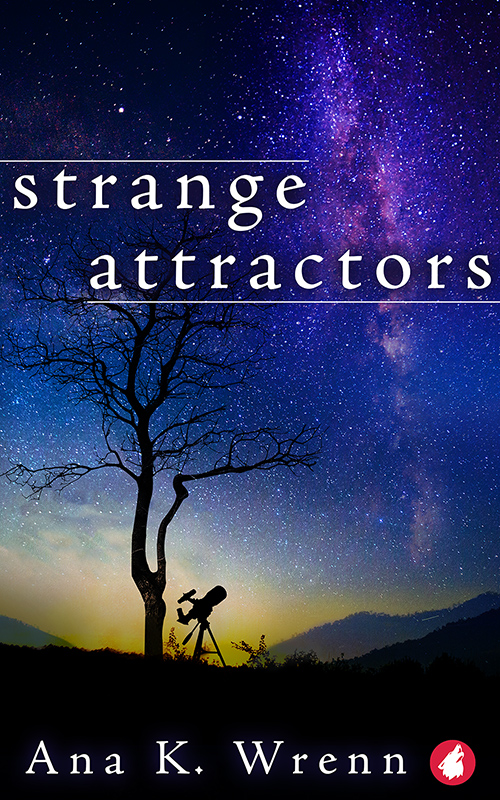Amazon Affiliate Link | Bookshop.org Affiliate Link
Waking up with amnesia in a cave and having no knowledge of who or what she is, the protagonist of Fledgling undergoes a painstakingly slow journey of discovering she is what’s called an Ina, or more popularly thought of as a vampire. She appears as a 10-year-old child but finds she’s actually 53 years old. As the story progresses, she learns more about her family, the way of the Ina, and who killed her family.
Because of her appearance as a child, Shori’s relationships with her symbionts are highly uncomfortable. More than that, she’s a Black child, which portrays how Black girls are often hypersexualized in real life. It’s also significant that although she’s Ina, she’s also a Black child, and that she is the result of experimentation, which can’t be ignored, as historically the U.S. government has experimented on Black communities.
The story unravels at an infuriating pace, but it makes sense as readers learn about what happened and about the Ina at the same time Shori does. Butler’s writing is effective in showing how frustrating and maddening it feels to have knowledge slowly come to you but no memory of how you know things.
While Shori engages in sexual relationships with both her male and female symbionts, it doesn’t seem like she particularly identifies as being on the bi/pan spectrum. On paper, it seems like it should be defined that way. But because Shori’s relationships are instinctual because of her Ina nature, it’s hard to say how much of her feelings are part of her sexuality, rather than part of her survival instincts.
Their relationships also bring up important questions about consent. When Shori finds herself needing to take over the symbiont relationship of Celia and Brook, her brothers’ former symbionts after they died, they agree to the bond. However, the chemical and hormonal responses between both Shori and the symbionts make them physically repulsed by one another and resist the transition. So, can this truly be considered consent?
The Ina culture hinges greatly on the separation of sexes between males and females being seen as men and women. The way Butler has written this society shows there’s no nuance for gender identity and what that means for the roles each individual plays in their culture. But much of what Shori learns about herself and the Ina comes from the word of Iosif, her father, meaning she must rely on the word of others around her to know how to behave. Butler shows that Shori trusts them based on instinct, so it presents the question of how much does social conditioning become encoded in one’s DNA?
There are so many layers and complex themes that Butler addresses with Fledgling. It would be impossible to hit every note in one book review. Overall, it’s a weird book with a lot to make readers uncomfortable. But if you can roll with that, then this is certainly a new take on the vampire mythos that I wish we’d had more room and time to discover. It reads like this was meant to be part of a new series, but it was the last novel Butler wrote before she died.
Trigger warnings: pedophilia


